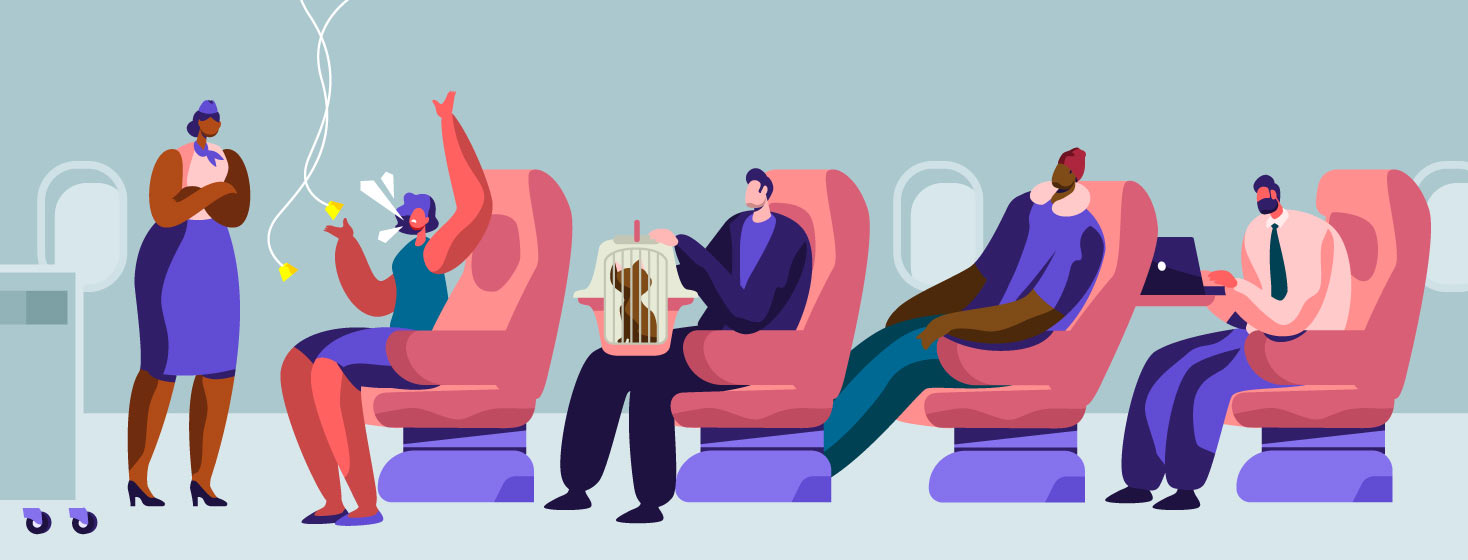Why Do I Have To Tell You I Have Asthma?
I really enjoy teaching people with asthma how to better manage their disease. Collaborating with clinicians on how to improve the patient/doctor relationship is extremely rewarding. It's empowering to lobby for funding and policies that help people with asthma. Being an educator and outspoken advocate is my passion. I’ll share my own asthma story with anyone who will listen.
But what I don’t enjoy is having to tell people I have asthma in an effort to be in an environment that doesn’t cause me harm.
A recent cross-country flight
Several months ago on a cross-country flight, I had paid extra for a seat in the front of the plane. With a quick layover, I wanted to make sure I could get off the plane quickly to make my connection. Just when boarding was almost finished, a man with a cat in a carrier ran onto the plane and sat right in front of me. Panic set in. I'm highly allergic and knew sitting so close to the cat for a few hours would cause asthma symptoms.
I explained to the flight attendant that I couldn't sit so close to the cat due to my allergy and asthma. Since the airline has an open seating policy, I asked if the passenger and cat could move to another seat. I was told that I could move my seat or take another flight. After all, I was the one "with the problem."
Taking a later flight wasn't an option, nor was staying in my current seat. So, I asked the flight attendant to help me find a seat away from the cat. My new aisle seat in the last row of the plane was far from perfect, but at least I was far away from the cat. I was frustrated that I had to publicly self-identify as someone with asthma and allergies.
Hearing people's judgemental comments is hurtful
Some people on the plane thought I was overreacting and happily told me so. Comments like "I bet her allergy is not that bad" were hurtful. I often feel judged by the able-bodied and healthy. It’s frustrating, because:
- Many disabilities are invisible. Even when we tell people we have a condition like asthma, they either A) don’t believe us, B) think we are being over-dramatic or C) using it as an excuse to get attention or special accommodations. Because people don’t believe us, we are forced to...
- Prove it. How often do we hear “You don’t look sick or like you’re having trouble breathing.” Or, “Just relax and breathe, you’ll be fine.” It’s exhausting to continually fight to be heard, understood, and believed. Sometimes it’s easier to stay silent.
- We deserve privacy. Sharing our health conditions should be voluntary. We shouldn’t be forced to share under stressful circumstances, like asking flight attendants to help in front of a plane of judgmental passengers.
- All spaces should be inclusive. It feels like accommodating those of us living with chronic conditions, complex diagnoses or physical limitations are an afterthought. Public places such as schools, offices, healthcare facilities, and churches should be fragrance-free. Public transportation needs to offer pet-free options.
Have you ever needed to explain your asthma?
Having to tell someone - whether its a coworker, stranger or family member - that something they are doing impacts your asthma is never easy. Have you been forced to explain your asthma in an effort to get reasonable accommodations? Share in the comments below!

Join the conversation